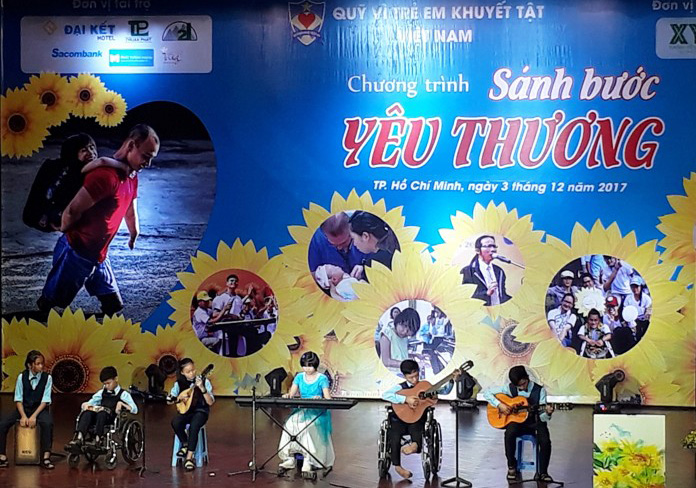HCMC – Disabled persons in Vietnam are among the hardest hit by the Covid-19 pandemic and are experiencing several health and socioeconomic challenges during this difficult time, according to an online survey conducted by the United Nations Development Program (UNDP) Vietnam, with support from the Australian Department of Foreign Affairs and Trade, the Embassy of Ireland in Vietnam and the Korea International Cooperation Agency.
Moreover, a large proportion of social enterprises that employ disabled people and provide services for them have also suspended operations, leading to unemployment and a reduced income among the community.
Some 80% of people with disabilities live in rural areas and face even greater difficulties in accessing essential medical and social services or continuing employment.
The survey also found that 70% of the nearly 1,000 respondents found it challenging to access medical care during the pandemic, including check-ups, medicines, assistive devices and rehabilitation services.
Some 25% of respondents experienced difficulties in procuring masks and hand sanitizers, while 22% admitted to suffering from an underlying medical condition.
In terms of employment, 30% of respondents were left unemployed as a result of the Covid-19 pandemic, while another 49% saw a reduction in their working hours.
Among those who are still employed, 59% received pay cuts. Only 3% of respondents are actively looking for a new job and 19% are exploring additional ways to generate an income.
When asked about their immediate needs, respondents focused on food, a cash allowance or other financial support, showcasing the significance of an immediate disability-inclusive response because they are already the poorest of the poor, have now lost their jobs and are having difficulty finding alternative sources of income.
An encouraging prospect was that awareness levels with regard to the Covid-19 infection among the disabled are high, with 67% of respondents stating they were well informed about the situation and response, with updated and real-time information.
However, only 20% of respondents have received masks and hand sanitizers, while just 3% have received relevant training on the public health protocols in place, such as the washing of hands, which is a very low figure for a high-risk group.
“It is difficult for me to respect social distancing and hygiene rules because people with visual impairment always need a sighted guide when going to a new place and have to touch objects to identify them and orient themselves,” a respondent noted.
UNDP Vietnam suggested the Government prioritize support for disabled people who are in urgent need of medical care and services and provide telehealth services, where appropriate, to facilitate the monitoring of health in their homes.
In the long term, the Government needs to develop new skillsets among disabled people, so they can explore new employment opportunities, especially in light of the fourth industrial revolution, including working from home and adapting to new online business practices. Providing accessible online employment and education platforms and promoting new online employment opportunities in the private sector could also go a long way.









